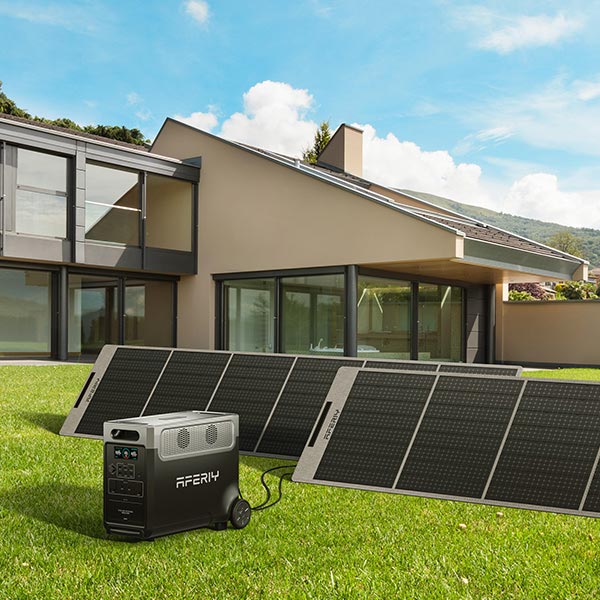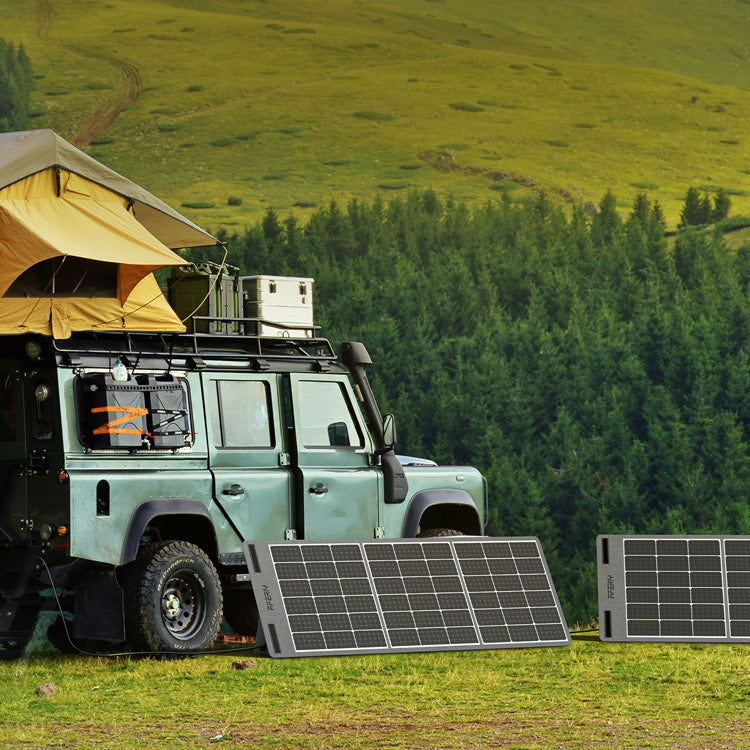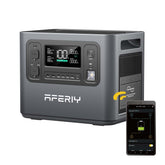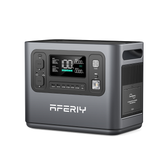What to Consider Before Buying a Portable Power Station
Backup power, to be honest, is almost a must to our everyday life due to plenty of cases that we can be stuck with power. Whether you're an enthusiast of outdoor exploration, a digital nomad or are living in a region where power outages are highly potential to strike, having a portable power supply is undoubtedly a life saver to spare you all the chaos resulting from having no electricity.
If you're in the market for a portable power station right for you, remember to focus on the features that you care most.
Have no idea about what to consider?
Don't fret, this article has included what you should look for when it comes to choosing a portable power station. Now let's get started.

How to Choose a Portable Power Station?
To get a portable power station well in line with your energy needs and way of living, there are a lot of things you should factor in, such as battery capacity, weight, charging ports, price and so on. To get into that more detailedly, keep reading and find more from the paragraphs below.
1. Capacity
Battery capacity tells you the watts of energy amount that a portable backup generator can output when you're running your devices with it. The unit of capacity is called watt hour (Wh). The higher the number, the more devices you can power up at one time.
So, think about appliances you'll need to power before placing your order. For instance, if you're caught in a power outage, you probably need to charge some electronic devices such as phone, laptop for a few hours. In this case, a small station with 100Wh capacity is basically enough.
While a 1248Wh power station will be a great choice if you're under circumstances where you need to run a number of larger appliances like refrigerators, grills, electric pots and coffee makers for an extensive period.
In a word, whether smaller or larger capacity you should choose depends upon what kinds of electric gadgets you'll need to power.
2. Portability
Mobility is the very first feature to cover if you are an adventure person, or always spend a lot of time living outdoors. So before you buy a battery-powered generator, it's important to check the weight and size carefully to make sure you can effortlessly carry it wherever you go.
3. Battery type
Rechargeable power station performs through the cooperation of a built-in battery, numerous components inside and charging tech. Lithium-ion batteries are the most universal one used in power stations on the market, while there are also models (like AFERIY portable power station) adopting lithium iron phosphate batteries, which usually have better durability and performance of heat resistance.
So, mobile power stations coming with lithium iron phosphate batteries are believed to have a longer lifespan.
4. Ports and outlets
Most portable power stations these days have different types of power outlets, such as USB ports, AC ports, DC ports. The diversity of output types means enhanced possibility to charge an array of devices and appliances under a variety of circumstances. Therefore, before checking out, figure out what you'll need to power to make sure your appliances are compatible with the power station.
5. Charging options
Don't neglect the charging type when you are choosing a right portable power for you. Some power stations only support charging via AC outlets, yet some kinds are compatible with solar panels as well, which means they are able to harness sun's energy and convert that into electricity to power your appliances. By doing so, they can provide a green and uninterrupted power solution for users. More importantly, it's a great way to save your energy bills!
6. Charge cycles
A cycle refers to the process that the battery charges from 0% to 100%, and then discharges to 0%. Usually, a portable power station has hundreds of charge cycles, those with larger capacities can even have thousands of cycles. Therefore, checking out the battery life cycles before purchase is of vital significance as well.
7. Affordability
Apart from features and technical specifications, keeping budget in mind is a key factor to help you make a good decision. That means you need to know how much you're willing to invest in. Averagely, low capacity ones will cost you around $150, while more powerful models can come at a price of around $2000.
Conclusion
Buying a portable power station is a smart investment as it contributes to you living an more easeful and nicer quality of life. Being accessible to backup power means you can always live on the cosy side whether under emergency cases or in off-grid living.
Check our guide above to make a wise decision, and gear up to explore the world of portable power!











Leave a comment
Please note, comments need to be approved before they are published.